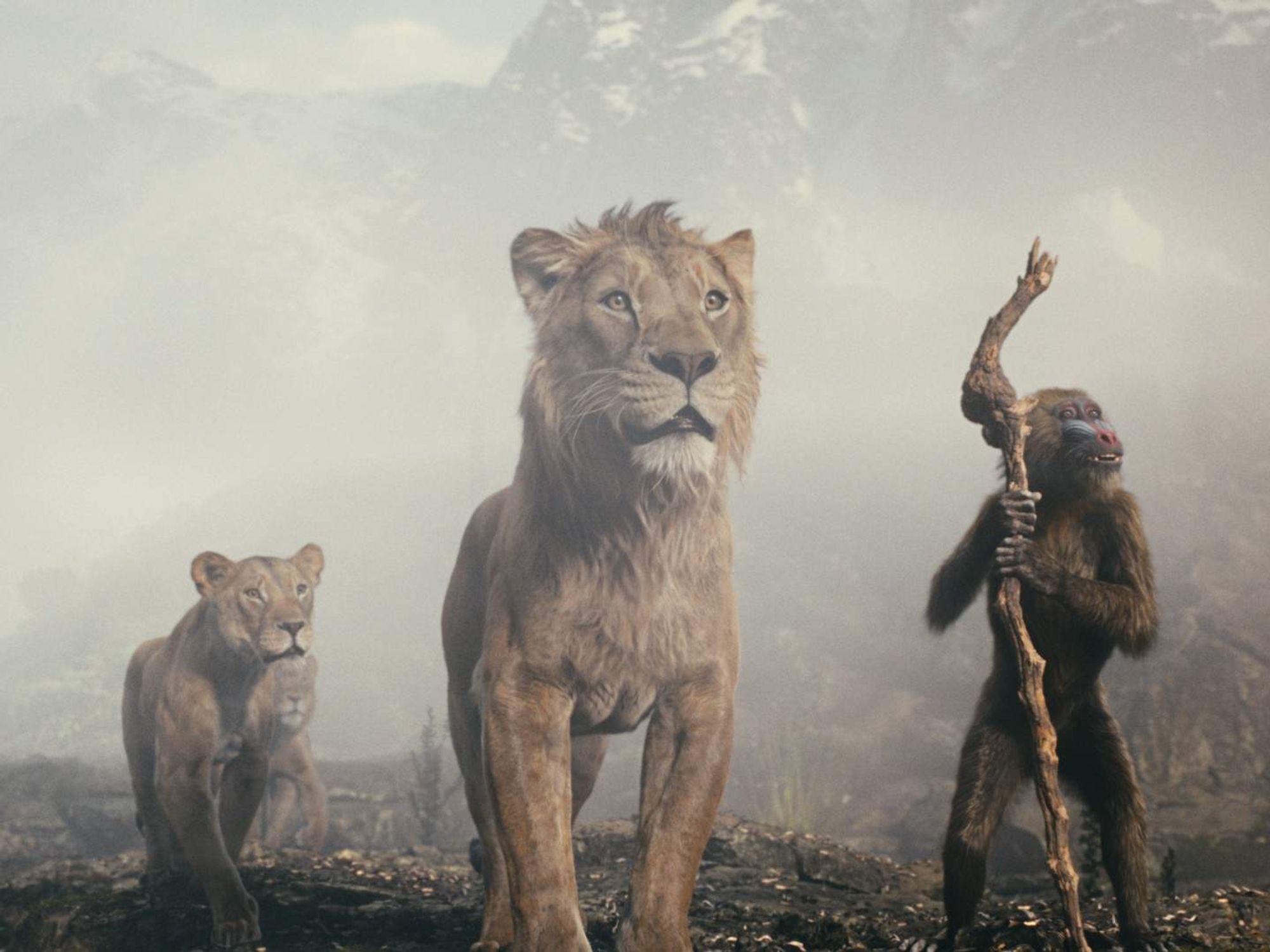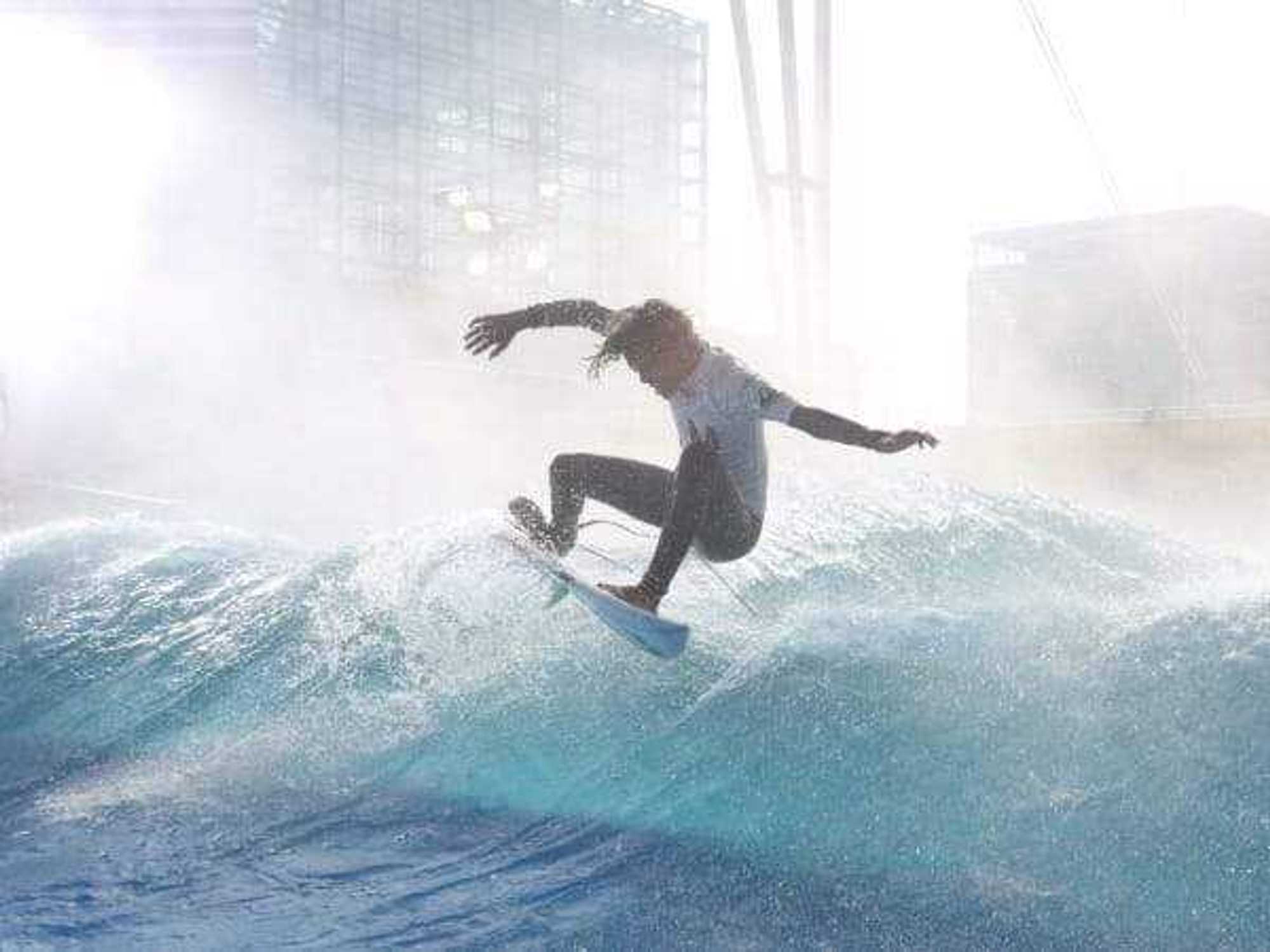Movie Review
Mufasa: The Lion King storyline might be wan but it sure is pretty

Sarabi, Mufasa, and Rafiki in Mufasa: The Lion King.
The 2019 “live action” remake of The Lion King had two big things going for it: People’s love for the original 1994 animated film and a filmmaking style that made the completely CGI film appear photorealistic. The new prequel, Mufasa: The Lion King, has the second element to lean on, but it must win moviegoers over with some familiar characters but a whole new story.
The origin story of Mufasa (voiced by Aaron Pierre) is broached by having it be told to Kiara (Blue Ivy Carter), the daughter of Simba (Donald Glover) and Nala (Beyoncé), by Rafiki (John Kani), Timon (Billy Eichner), and Pumbaa (Seth Rogen), the first of a series of unnecessary decisions in the film.
As the film tells it, a young Mufasa is on his way to a new home with his parents when he’s washed away by a flash flood. Lost and alone, he’s discovered by Taka (Kelvin Harrison, Jr.), who convinces his mom, Eshe (Thandie Newton), to take Mufasa into their pride, although Taka’s dad, Obasi (Lennie James), is less welcoming.
Mufasa, who proves himself to be brave and daring, and Taka, who's loyal but somewhat weak-willed, grow from cubs into young lions, and their adventures together eventually grow to include a young Rafiki (Kagiso Ledika), as well as Sarabi (Tiffany Boone) and her hornbill companion, Zazu (Preston Nyman). They’re also menaced by a pride of white lions led by Kiros (Mads Mikkelsen), who waste no opportunity to threaten the other lions’ way of life.
Directed by Barry Jenkins and written by Jeff Nathanson, the film - like its 2019 predecessor - has absolutely gorgeous visuals. Using a mixture of real locations and computer generated imagery, Jenkins and his team created a world that feels fully immersive. Everything from the water to the grass to the animals looks like it actually exists, which is an amazing accomplishment and should be celebrated as such.
But the level of detail on that side of the film only increases the level of disappointment with the story. Given the chance to create something new, the filmmakers instead seem to treat the film as just a way to introduce every significant symbol from the original story. You would have thought having young versions of familiar characters would be enough, but instead they go overboard with references, including the creation of a certain location that is patently ridiculous.
Nathanson also overloads the plot with characters and twists. Mufasa’s rise from a nobody to king is faced with multiple obstacles, way too many for what should have been a much simpler story. And Lin-Manuel Miranda’s streak of great music in Disney films ends here, as none of the four songs he contributed work very well. Some are undone by odd phrasing by the performers, and others look strange coming out of the mouths of the characters, but either way, the songs just don’t connect.
The voice performances neither elevate the film nor take away from it. Pierre (Rebel Ridge) and Harrison (Waves) are rising stars in actual live action films, but their appearances here are negligible to the impact of their characters. Mikkelsen (Rogue One) is known for playing great bad guys, and he’s okay here, but nothing to write home about. The rest of the performers don't offer anything special to their roles, including Beyoncé and her daughter, Blue Ivy.
For those who are only looking for “Oh, that’s where that came from!” moments, Mufasa: The Lion King may fit the bill. But for anyone who may want something more than a version of nostalgia, especially from a visionary director like Jenkins, it serves as nothing more than two hours of pretty vistas.
---
Mufasa: The Lion King opens in theaters on December 20.
